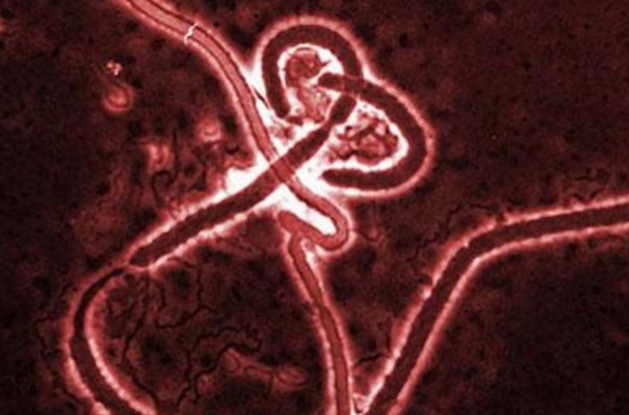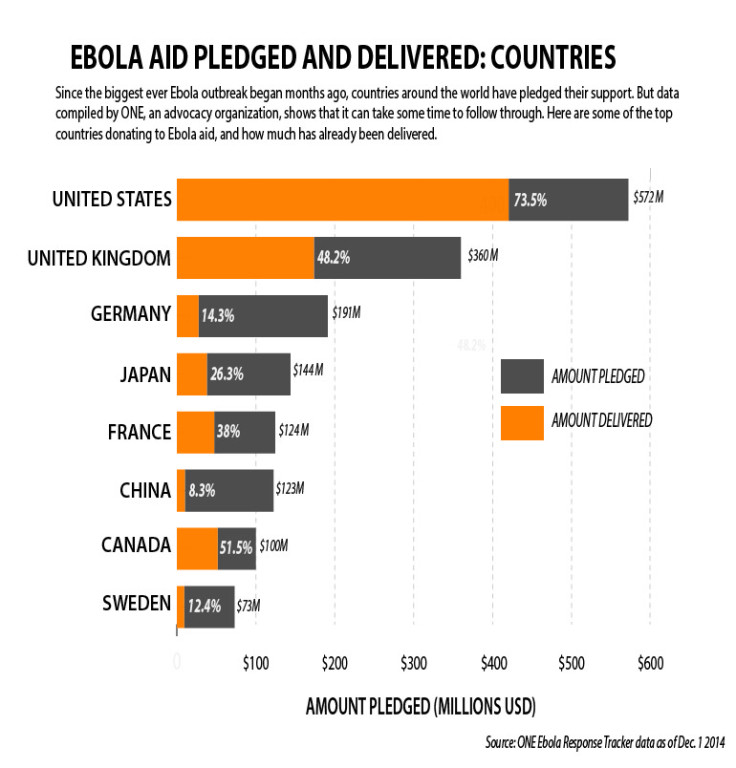Many Ebola Donations Have Yet To Be Delivered, Watchdog Group Says

Volunteers, equipment and money have been pouring into West Africa for the past few months as governments and organizations attempt to help stem the worst Ebola outbreak in history. While many governments and charities around the world have pledged millions in aid funding, sending money to fight an epidemic isn’t always straightforward, and some watchdog groups have been trying to keep track of who’s been spending what.
“When crises like the West African Ebola outbreak hit, the job of advocates is to hold leaders accountable for their pledges, ensuring that countries deliver the services needed on the ground as quickly as possible in order to save lives and rebuild for the long term,” a recent report from ONE, an advocacy group that’s been tracking both promised and delivered Ebola money, said.
ONE collected data from the United Nations, the Office for the Coordination of Humanitarian Affairs and the World Bank. The results also draw on data from press releases, government representatives and information from other agencies dating to Dec. 1.
The United States has pledged and delivered the most aid out of all the countries surveyed, followed by the United Kingdom, Germany, Japan, France, China, Canada and Sweden. However, none of these countries has yet fully delivered on their promised donations.
“Major gaps in data on pledges and disbursal rates exist,” the report said. For instance, while the U.S. has pledged $572 million, about $420 million has been disbursed. However, this is still one of the best rates of all countries. In the top eight, China has delivered on only 8.3 percent of its promised $123 million in donations.
The virus has killed more than 6,500 people so far, and while there are signs it may be slowing in Liberia, Sierra Leone is seeing its own rate worsen. And Guinea continues to struggle. Economists say the outbreak could cost the affected countries billions, and time is of the essence.
“The time lag between turning pledges into contractual commitments and then converted into fully paid-out disbursements is in many cases too long,” the report said.
No country has outlined a timetable for delivery of funds, and more donors continue to come on the scene, while other large sums are still pending. For example, U.S. President Barack Obama has asked Congress for $6.2 billion to respond, but it has yet to be approved.
The researchers were also careful to note that, while no single African country has contributed more than $10 million, which was their initial cutoff for analysis, many African nations have made “significant and commendable contributions.” Nigeria for instance, has pledged $3.5 million, while Kenya, Namibia and Cote d’Ivoire have pledged $1 million each, while Ethiopia plans to put in $500,000. Last week, the African Union pledged $28.5 million from the richest individuals on the continent.

© Copyright IBTimes 2025. All rights reserved.






















